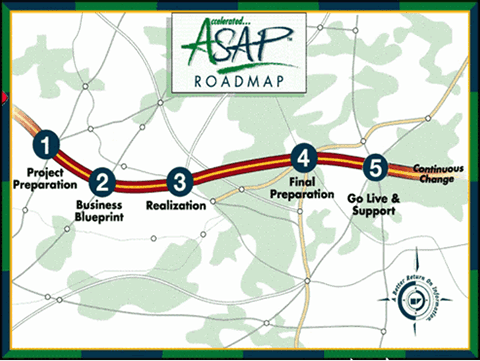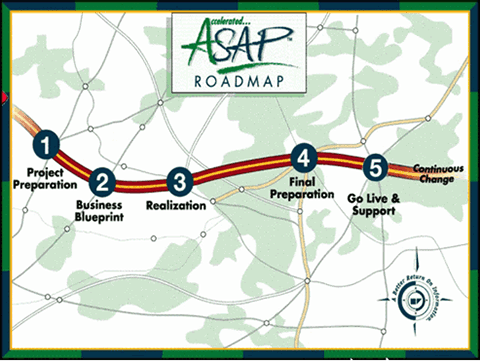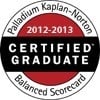SAP ERP Functional Consultants
Change is constant, and when you’re a SAP customer, if you’re not constantly changing, you’re getting left behind your competition. As SAP Business Warehouse implementers, we have found that on every SAP ERP system we work on, there is virtually always a need to make changes to the SAP ERP system that is typically driving SAP BW.
That is why we have developed an SAP eco-system that can help us facilitate those SAP ERP System Updates. We have partnered with a leading Miami, Fl based SAP consultancy to deliver SAP Functional Consulting at highly competitive rates, in your time zone, that speak your language.
Supporting SAP Projects
Whether you need a single SAP Consultant or a whole team of SAP Consultants, we can cover your SAP functional consulting requirements. Each SAP Consultant is a senior SAP functional consultant and is able to deliver their deep SAP Consulting Expertise using the now proven ability to work remotely. Every SAP project delivers uniquely capable business processes. AS a leading SAP company, we pride ourselves on being able to help our valued customers achieve their business goals.
Many SAP Functional Consulting Modules Supported
Our SAP Functional Consulting team can support all core SAP functional modules. In addition to SAP FICO, SAP MM, SAP SD, SAP PM, SAP PS, SAP EWM, SAP HCM, SAP SCM and SAP CRM, we can provide:
- SAP Solution Architects
- SAP BASIS Consultant
- SAP Security Consultant
- SAP RAR Consultant
- SAP Technical Consultants (SAP ABAP)
- SAP Training Consultant
As you can see, having SAP Functional Consulting experts available greatly benefits SAP Customers as it provides a ready source of hard to find SAP Skillsets.
But Just Why Do You Need SAP Functional Consulting?
The typical SAP implementation lifecycle goes something like this:

The SAP ASAP Roadmap
There is an initial RFP (sometimes there isn't an RFP) driven selection process, with proposals submitted by various software vendors, such as SAP and their partners. In order to ‘win the deal’, compromises are made on scope in order to reduce the cost of the project. Now the customer ends up with highly capable Enterprise Resource Planning Software, constrained by the budget available to implement the agreed up functional and technical scope of the project. Ultimately, this means leaving functionality out of the implemented scope, even if it was identified during the SAP ASAP Blueprint Phase as a requirement.
Compromise Represents Deferred Requirements.
During the SAP implementation project, further compromises will have to be made. Many business requirements that were not identified during the RFP development process will now be surfaced and business users will ask that they be covered during the blueprint process. Your team of functional SAP consultants will attempt to find solutions using standard available functionality, but many of the requirements will be outside of the software's capability, with custom development required.
Change Request
A change request will be submitted, and a strong project manager will evaluate each on its merits, much negotiation will take place and some but not all of these changes will be implemented. The changes that are disapproved will be ‘parked’ in the post Go-Live to do list (this is called the Continuous Business Improvement phase), perhaps never to be worked again or more than likely, the requirement will be resurfaced.
How Big Can This Parking Lot Be?
"On one 5000 man-day fixed price project this author (Senior SAP Project Manager) ran, there were more than 3000 mandays worth of requested changes made! Each required evaluation, and consumption of much of the management reserve, even after denying most of them."
Business Change Happens While Your Project Happens
At the same time as the SAP implementation project is undertaken, the business continues to evolve, buying new businesses, selling off others, making process changes, introducing new products, and generally, changing.
As part of the implementation, the customer will be surprised to learn that they will have to have some sort of what will prove to be fairly expensive SAP resources to manage the SAP system post Go-Live.
Typically, at a minimum, this will consist of:
- Basis Consultants x 2
- FI/CO Finance Consultant x 1
- MM/SD Materials Management/Sales and Distribution Consultant X 1
Your SAP Team Is Very Valuable To Market
If the company followed the SAP ASAP implementation methodology (now SAP Activate Methodology), then they may well have selected internal people to attend fairly expensive SAP Academy Training, either on-site or in a SAP Training Center. That makes them more valuable to the market, and also following the SAP ASAP Implementation methodology, changes will have been made to their compensation packages to improve retention.
Congratulations. You’ve now built an in-house SAP consultancy!
For very large companies, these internal SAP teams may well be very large, large enough, in fact, to continuously run roll-outs within the company on a constant basis. Think fortune 1000 size companies. They don’t typically do SAP everywhere at all once, but instead first establish a Global Template then do local rollouts with local business process variants incorporated into the deployment model to account for local business process requirements.
SAP BW Should Be Implemented Starting Six Months After Go-Live and Stabilization
Or so sayeth SAP. We have seen it done concurrently, after the fact and on a project-by-project basis. Most interestingly, what we continuously run across, especially on older, well established implementations, is that many of those ‘deferred requirements’ have been permanently deferred, and that the underlying business process simply cannot support the required analytics without substantial consulting work on the SAP system.
So what happened to the internal SAP Team?
The short answer is, their role changed. Once the major implementation was completed, they had less SAP work, eventually, and the boss had them take on not one additional role, but many, and they started getting rusty. Or they got head hunted away or promoted to another role within the company.
Some call this up or out.
The company also started to find they needed skillsets outside the core modules that their internal SAP team supported, and with SAP having 16 core modules plus many industry solutions and what were once known as New Dimension products, such as SAP BW (SAP Business Warehouse), it is too much to expect this small core team to be able to do a SAP Functional Consultant task outside their domain expertise.
This is especially pronounced in smaller companies.
The smaller the operation, the more the need is for external SAP functional consulting. SAP says that 2/3rds of their installed base is in the SME (Small and Medium Enterprise) space, and that globally, there are 79,000,000 million businesses that fit into this category and could benefit from an ERP system, Additionally, 80% of those businesses have not yet implemented an ERP and rely on custom built solutions or have hacked together a series of systems to create their own version of ERP, increasing the demand for SAP resources even more.
But just because they are small doesn’t mean they have simple business process requirements. Indeed, the smaller they are, the more differentiated they have to be in order to compete in their niche.
Thus The Need for Functional SAP Consulting at Very Low Rates.
Let's say you are a grocery chain, and you have been live with SAP for many years. You now want a shiny new executive interactive dashboard. We got you covered. We’ve been there, we’ve done that, and we can use pre-existing templates and our expertise to deliver that.
But there is a problem. Our Dashboard has revealed that you have a constant problem with forecasted stock outages, which is definitely something a retailer wants to avoid. Investigation reveals that the problem is really an issue with your MRP Strategy Settings, which have not been adjusted since Go-Live, 10 years ago.
It is a simple task to actually adjust this, but it requires deep expertise with the IS-Retail Solution and MRP strategies, as well as current knowledge of ‘best practices’. Wouldn’t really make sense to have someone sitting around for 10 years waiting to make this update . That is why you need a way to both have this expertise on demand and to do it cheaply.
Industrialization is the key to effective specialization
Our SAP Functional Consultants all work remotely, in a tight knit team environment. In effect, they are a SAP knowledge factory, and can keep their knowledge up-to-date, and cross-pollinated from the other specialties.
This is different than just having an off-shore ABAP factory. They depend on someone telling them what to build, which still requires functional expertise somewhere in the knowledge supply chain.
This model combines the advantages of remote support with deep SAP Functional Expertise delivered using a subscription model.
The Subscription Model is Key to this Approach
Our delivery model is based on subscribing to a certain number of SAP Functional Consulting hours each month, typically:
- 40 Hours – Typically for a client with between 20-40 users
- 60 Hours - Typically for a client with between 40 – 80 users
- 80 Hours - Typically for a client with more than 80 users
Beyond these sizes, we typically see a need for a slightly larger number of hours and some onsite delivery management. We can support it in any case.
But let's say you don’t use your 40 hours. Welcome to Roll-Over hours. That’s right, we let you roll-over those unused hours to the next month.
That’s how you get the most out of your analytics, you make sure you are getting the most out of your SAP system.
Low-Cost SAP Functional Consulting Support
Give us a call to discuss how we can help you get the most out of your SAP system.



